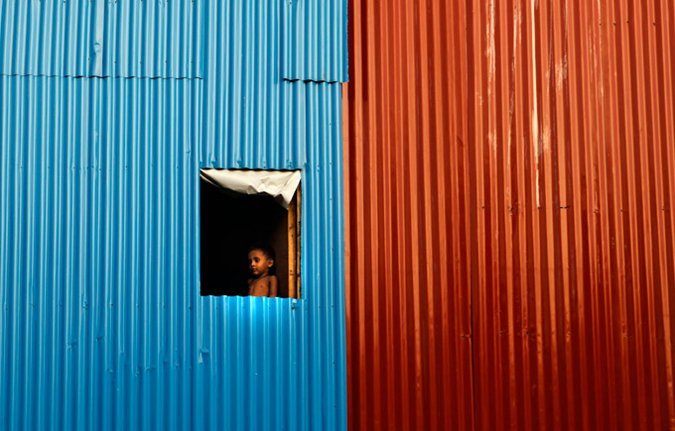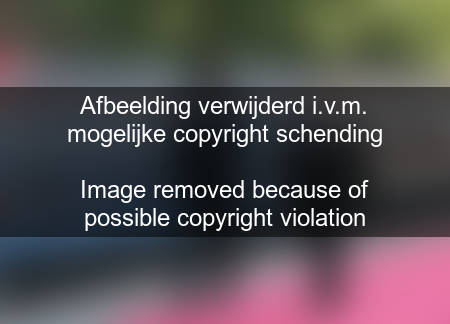the Sudan split, the Salva Kiir, the George Clooney .. and..
gar - 24.01.2011 22:14
the Sudan split, the Salva Kiir, the George Clooney .. and the Chinese factor
An opinion poll shows that the secession referendum in Sudan will probably trigger more violence resulting in the West's exploitation of southern oil-rich Sudan.
Nearly 58 percent of the respondents voted that the referendum on secession of southern Sudan will not only lead to a new wave of violence, strife and socio-economic instability, but it will also enable the exploitation of south Sudan's oil by the removal of the anti-western regime.
But why George Clooney wants to "Save Darfur" and Southern Soudan ... from the "bad boys of the North" ?
because ..

SUDAN splits..
An opinion poll shows that the secession referendum in Sudan will probably trigger more violence resulting in the West's exploitation of southern oil-rich Sudan.
Nearly 58 percent of the respondents voted that the referendum on secession of southern Sudan will not only lead to a new wave of violence, strife and socio-economic instability, but it will also enable the exploitation of south Sudan's oil by the removal of the anti-western regime.
The opinion poll was conducted by Press TV from January 8 to 18. A total of 638 participants took part in the poll. Only 13.79 percent of the respondents voted that the long-term conflict between south Sudan leaders and Khartoum will come to an end. It is noteworthy that 27.4 percent of respondents were from the US, 9.5 percent were from the UK, 5.9 percent from Canada, 2.9 percent from Kuwait, 2 percent from Australia and 52.3 percent from other countries. The vote is in contradiction with a 2005 peace agreement, brokered by the African Union and the United Nations, ending decades of civil war between Sudan's northern and southern parts. Sudan's President Omar Hassan al-Bashir has said the divisions between the two regions are the legacy of the former colonial power, Great Britain. Bashir has also warned that south Sudan would face instability in the wake of a possible secession. "The south suffers from many problems. It's been at war since 1959," the Sudanese president said. "The south does not have the ability to provide for its citizens or create a state or authority," he further explained. Last Saturday, at least 25 people were killed and many more injured in clashes between fighters from two rival tribes in the Abyei region of southern Sudan ahead of the historic referendum. The United States and the European Union have been campaigning for years to split the major African country, voicing support for the secession of the oil-rich, mainly Christian south. The effort has openly promoted racism as well as sectarianism, claiming rivalries between Arabs versus Africans and Christians against Muslims.
In an interview with Press TV, African political analyst, Nii Akuetteh, said that when countries like the United States and China back regimes in Sudan “they see that those regimes are serving their interests, and then they can work with them.” “They are looking at the south [Sudan] and [are] giving more support to the south,” he added, referring to China. However, Akuetteh believes that outside interference is not the only issue causing conflict between north and south Sudan and said that “the north has mistreated Southern Sudan for a long time.” On Sunday, people in southern Sudan began voting in a landmark referendum on independence from the north, hoping that the week-long vote could split Africa's biggest country in two.
-------------
But why George Clooney wants to "Save Darfur" and Southern Soudan ... from the "bad boys of the North" ?
because ...
Southern Sudan produces 85% of Sudanese oil output. The oil revenues according to the Comprehensive Peace Agreement (CPA), are to be split equally for the duration of the agreement period. Oil revenues constitute more than 98% of the semi-autonomous government of Southern Sudan's budget. The oil and other mineral resources can be found throughout Southern Sudan, but the Bentiu is commonly known as being especially rich in oil, while Jonglei, Warap and Lakes states have potential reserves. In recent years, a significant amount of foreign-based oil drilling has begun in Southern Sudan, raising the land's geopolitical profile. Khartoum has partitioned much of Sudan into blocks, with about 85% of the oil coming from the South. Blocks 1, 2, and 4 are controlled by the largest overseas consortium, the Greater Nile Petroleum Operating Company (GNPOC). GNPOC is composed of the following players: China National Petroleum Corporation(CNPC, People's Republic of China), with a 40% stake; Petronas (Malaysia), with 30%; Oil and Natural Gas Corporation (India), with 25%; and Sudapet of the central Sudan government with 5%. The other producing blocks in the South are blocks 3 and 7 in Eastern Upper Nile. These blocks are controlled by Petrodar which is 41% owned by CNPC, 40% by Petronas, 8% by Sudapet, 6% by Sinopec Corp and 5% by Al Thani Another major block in the South, called Block B by Khartoum, is claimed by several players. Total of France was awarded the concession for the 90,000 square kilometre block in the 1980s but has since done limited work invoking "force majeure". Various elements of the SPLM handed out the block or parts thereof to other parties of Southern Sudan. Several of these pre-Naivasha deals were rejected when the SPLM/A leader Dr. John Garang de Mabior lost power. The wealth-sharing section of the CPA states that all agreements signed prior to the CPA would hold; they would not be subject to review by the National Petroleum Commission (NPC), a commission set up by the CPA and composed of both Khartoum and Southerners and co-chaired by both President al-Bashir of Khartoum and President Kiir of Southern Sudan. However, the CPA does not specify who could sign those pre-CPA agreements
------------------
But here we are again where we started from .. ..
They were all planing without considering the "Chinese factor" ..
China is willing to help seek an early and proper resolution of the four-year conflict in western Sudan's Darfur region."China would like to work with the international community and push for the early and proper settlement of the Darfur issue," Vice President Zeng Qinghong said in a meeting with Sudanese First Vice President Salva Kiir Mayardit here Wednesday July 18th.Zeng reaffirmed China's stance on the Darfur issue and reviewed China's role in pushing for the early settlement of the issue.China appreciated that the Sudanese government has reached consensus with the United Nations and African Union (AU) on the deployment of a hybrid force of troops in Darfur, Zeng said.Zeng also hailed the efforts by various parties to promote the political process of the Darfur region.Mayardit, who is also president of the southern Sudan region, said the north and south of Sudan were both committed to maintaining national unity and reconstruction.He invited China to participate in the reconstruction of southern Sudan and promote Sudan-China friendly cooperation. Mayardit appreciated China's positive role in helping resolve the Darfur issue. Mayardit arrived in Beijing Tuesday afternoon. The six-day visit will also take him to China's financial center Shanghai and southwest China's Chongqing Municipality
|



